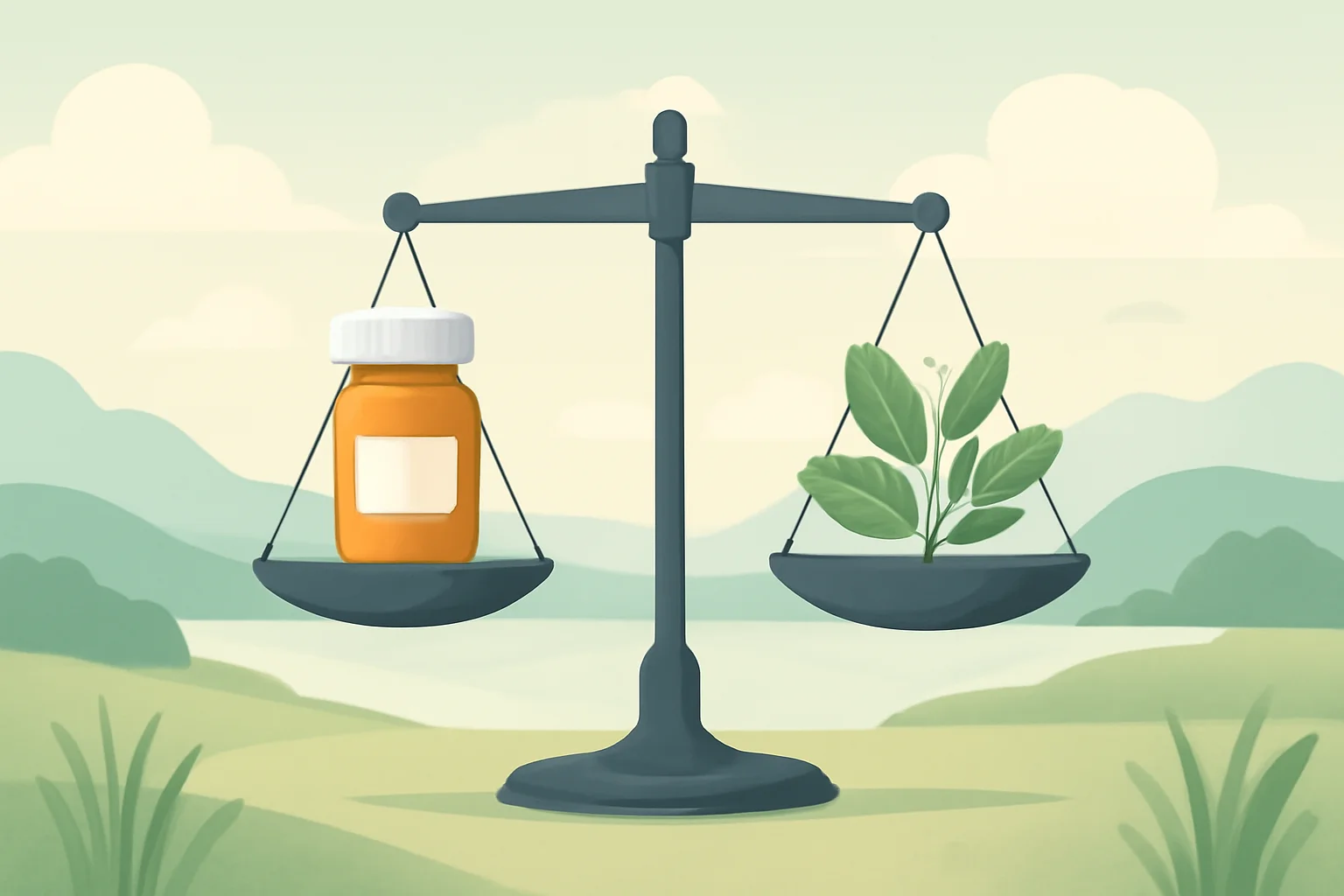
Medication or Natural Solution: What is the Best Choice?
The choice between modern medicine and natural remedies occupies many people’s minds. In everyday life, more and more individuals are seeking alternative solutions that consist of natural ingredients and avoid the use of synthetic drugs. The effectiveness and speed of medications are often undeniable, yet many are concerned about the side effects that can accompany medical treatments. Additionally, natural solutions such as herbs, dietary supplements, and lifestyle changes are becoming increasingly popular, as many believe they are gentler on the body.
The dilemma between medication and natural solutions is influenced by many factors, including personal experiences, family traditions, and expert recommendations. Furthermore, scientific research is continually evolving, which may shed new light on the effectiveness of natural remedies. People are increasingly open to integrating traditional medicine with natural methods, potentially leading to a holistic approach to health maintenance.
In the following sections, we will analyze in detail the advantages and disadvantages of medications and natural solutions, as well as how we can find the most suitable solution for improving our health.
Medications: Effectiveness and Side Effects
The use of medications is widespread and forms the foundation of modern medicine. The effectiveness of medications is often quick and noticeable, allowing for rapid relief of symptoms. Antibiotics, for example, play a life-saving role in treating bacterial infections, while pain relievers can provide immediate relief for those suffering from pain.
However, the use of medications is not without risks. Side effects can range from minor inconveniences to serious health problems. Many individuals may experience allergic reactions, digestive issues, or even more severe complications with long-term use of medications. Prolonged use of drugs can lead the body to become accustomed to the active ingredient, resulting in the development of tolerance. This means that the patient may require increasingly larger doses to achieve the desired effect, further increasing the risk of side effects.
It is important to note that medications should always be taken based on medical advice, as professionals can take the patient’s individual circumstances into account and recommend the most appropriate treatment. The effectiveness of medications is often based on scientific research, and many prescribed treatments are backed by years of experience.
Medications can thus be effective, but due to side effects and long-term consequences, it is crucial for patients to be aware of this duality and to proceed cautiously when making their choices.
Natural Solutions: Advantages and Disadvantages
Natural solutions, such as herbs, dietary supplements, and various lifestyle changes, can offer numerous benefits. These methods are often gentler on the body, and in many cases, the risk of side effects is lower than with medications. Natural remedies generally support the body’s natural processes through their ingredients, thereby aiding in healing.
Herbs such as chamomile, ginger, or lavender have long been used to treat various health issues. In many cases, research supports their effectiveness, and more people are turning to natural solutions instead of medications. Dietary supplements, such as omega-3 fatty acids or vitamins, are also popular, as many believe they contribute to health maintenance.
At the same time, natural solutions are not without their drawbacks. While many believe in the beneficial effects of herbs and dietary supplements, sufficient scientific evidence for their effectiveness is not always available. Additionally, natural ingredients can also cause allergic reactions or interact with other medications, which can pose risks.
When using natural solutions, it is important for users to be informed about the appropriate dosages and methods of application. In many cases, professional recommendations are also necessary to achieve the desired effect and avoid unpleasant consequences.
Natural solutions thus offer a promising alternative, but it is worth carefully considering when and how to apply them.
How to Choose Between Medications and Natural Solutions?
When choosing between medications and natural solutions, it is important to consider several factors. The first step is always to assess the symptoms and the problem at hand. If the symptoms are severe or have appeared suddenly, medication may be the best solution, as drugs often provide quick and effective assistance.
On the other hand, if the problem is chronic or of a lesser degree, it may be worth considering natural solutions. These methods often offer long-term solutions and can help restore the body’s natural balance.
It is crucial for patients to be aware of their own bodies and their reactions. Individual differences can significantly affect how effective a particular medication or natural solution will be. It is advisable to pay attention to our body’s signals, and if one method does not work, it is perfectly acceptable to try other alternatives.
When making decisions, it is best to seek medical advice, as professionals are most familiar with the various options and their effects. A doctor’s recommendation can help ensure that we find the most appropriate solution, taking into account our personal circumstances and health status.
The choice between medications and natural solutions is not always straightforward, but with proper information and professional assistance, we can find the best solution for ourselves.
The Role of a Holistic Approach in Health Maintenance
The holistic approach to health maintenance is gaining ground. This perspective focuses not only on treating symptoms but also on considering the whole body. According to the holistic approach, physical, mental, and emotional health are closely intertwined, and changes in one area can affect another.
This approach allows for the combination of medications and natural solutions. For example, in the case of a chronic illness, the patient may receive medical treatment while also using herbs and dietary changes to support healing. Followers of the holistic approach often emphasize the importance of lifestyle factors such as stress management, physical activity, and healthy eating.
The advantage of the holistic approach is that it targets not just the symptoms but also the root of the problem. This can be particularly important in chronic diseases, where merely treating symptoms is insufficient. Patients often find that restoring physical and mental balance is far more effective in the long term than simply alleviating symptoms temporarily.
However, the holistic approach is not without its criticisms. Many professionals warn that using unproven natural remedies can be risky, and neglecting traditional medicine can have serious consequences. Therefore, it is essential to support the holistic approach with medical advice and scientific evidence.
In summary, it can be said that considering the holistic approach when choosing between medications and natural solutions can play an important role in health maintenance.
**Warning:** This article does not constitute medical advice. In case of health problems, please consult your doctor or healthcare professional.

